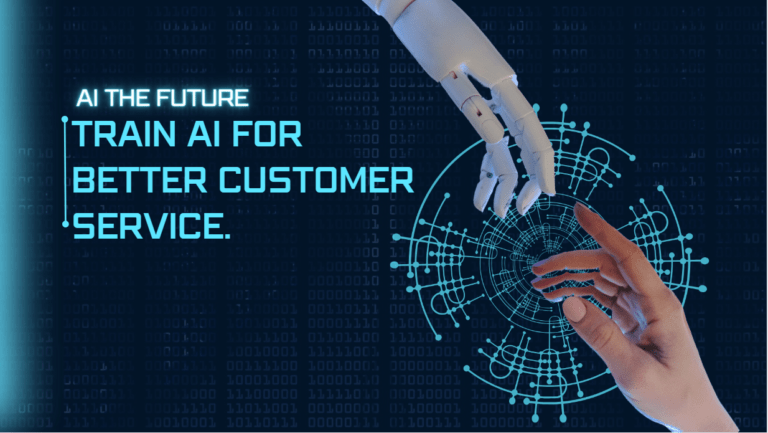The traditional nine-to-five office work model is undergoing a significant transformation as remote work gains popularity. The COVID-19 pandemic propelled this shift, forcing companies to quickly adopt remote work practices. However, as we move towards a post-pandemic world, a new work model is emerging – the hybrid workforce. This article explores the future of remote work and how organizations and individuals can adapt to this evolving landscape.
Understanding the Hybrid Workforce
The hybrid workforce is a work arrangement that combines both remote and in-person work. It allows employees the flexibility to choose where they work while also providing opportunities for face-to-face collaboration with colleagues. This model provides the best of both worlds, catering to employees’ desire for flexibility and organizations’ need for in-person interaction.
Advantages of a Hybrid Workforce
Flexibility:
The hybrid work model offers enhanced flexibility, allowing employees to work from their preferred location. They can avoid long commutes, create personalized work environments, and balance their personal and professional lives more effectively.
Productivity:
Research indicates that remote work can increase productivity due to fewer distractions. By incorporating remote work into a hybrid model, employees can focus on individual tasks remotely and collaborate in person when face-to-face interaction is beneficial.
Access to Talent:
A hybrid workforce opens doors to a global talent pool. Companies can recruit top talents regardless of geographical boundaries, fostering diversity and creating high-performing teams.
Cost Savings:
Both employees and organizations can enjoy cost savings with a hybrid workforce. Employees save on commuting expenses and work-related costs, while companies can reduce overhead expenses associated with maintaining large office spaces.
Challenges and Solutions for Adapting to a Hybrid Workforce
Communication and Collaboration
Challenge: Effective communication and collaboration become crucial when team members are physically dispersed.
Solution: Organizations should invest in reliable communication tools and technologies to bridge the gap. Regular virtual meetings, clear communication channels, and project management software can help teams stay connected and collaborate effectively.
Maintaining Company Culture
Challenge: Remote work can challenge the sense of belonging and strong company culture.
Solution: Companies should prioritize building a virtual culture through team-building activities, regular check-ins, and fostering open communication. In-person retreats or social events can also strengthen relationships among team members.
Work-Life Balance
Challenge: Remote work can blur the boundaries between work and personal life, leading to burnout.
Solution: Establishing clear work hours, designated workspaces, and promoting breaks can help employees maintain a healthy work-life balance. Managers should lead by example and encourage employees to prioritize self-care.
Performance Evaluation
Challenge: Evaluating employee performance becomes more complex in a hybrid workforce.
Solution: Establish clear performance metrics and goals that focus on outcomes rather than hours worked. Regular feedback and check-ins can monitor progress and provide support when needed.
The Role of Leadership
Leadership plays a crucial role in successfully transitioning to a hybrid workforce. Managers should:
- Lead by example and embrace remote work themselves.
- Set clear expectations and guidelines for remote work and in-person collaboration.
- Foster a culture of trust and empower employees to take ownership of their work.
- Provide necessary resources and support for remote employees.
- Continuously assess and refine the hybrid work model based on feedback and insights from employees.
The future of remote work lies in adapting to a hybrid workforce, where the advantages of remote work and in-person collaboration are combined. By addressing challenges related to communication, maintaining company culture, work-life balance, performance evaluation, and embracing strong leadership, organizations can create a flexible and productive.
Challenges and Solutions
Technology Integration for Seamless Workflows
Challenge:
Organizations need to ensure the smooth integration of technology across different work environments.
Solution:
Invest in robust IT infrastructure, cloud-based collaboration tools, and cybersecurity measures. Provide training and resources to help employees leverage technology effectively for remote and in-person work.
Nurturing Employee Well-being in a Hybrid Workforce
Challenge:
Remote work can lead to feelings of isolation and decreased social interaction.
Solution:
Implement initiatives to support employee well-being, such as virtual wellness programs, mental health resources, and regular check-ins with managers and colleagues. Encourage work-life balance and foster a sense of community through virtual social events.
Building Flexibility into Scheduling and Remote Work Policies
Challenge:
Balancing work schedules across different time zones and accommodating employees’ personal obligations.
Solution:
Offer flexible work hours that accommodate various time zones and personal commitments. Establish core hours for collaboration and empower employees to manage their work schedules effectively.
Effective Onboarding and Training for Remote Employees
Challenge:
Onboarding and training remote employees present challenges in building connections and providing hands-on experiences.
Solution:
Develop comprehensive virtual onboarding programs that include interactive elements, video introductions, and virtual mentorship. Utilize online learning platforms and virtual simulations for training purposes.
Shifting Focus to Outcome-Based Work Models
Challenge:
Traditional work models emphasize the number of hours worked rather than the quality of outcomes.
Solution:
Shift the focus towards results-oriented work by setting clear goals and performance metrics. Encourage employees to take ownership of their tasks and measure success based on deliverables rather than time spent.
Agile Workspace Design for Hybrid Collaboration
Challenge:
The physical office space needs to be reimagined to accommodate a hybrid workforce.
Solution:
Create agile workspaces that allow for flexibility and collaboration. Implement hot-desking, designated collaboration areas, and video-conferencing facilities to support both remote and in-person work.
Strengthening Team Dynamics in a Hybrid Workforce
Challenge:
Building strong team dynamics can be challenging when team members work in different locations.
Solution:
Foster regular team interactions through virtual meetings, team-building exercises, and virtual coffee breaks. Encourage cross-team collaboration and create opportunities for remote and in-person employees to connect and build relationships.
Ensuring Data Security in a Hybrid Work Environment
Challenge:
Protecting sensitive data and ensuring secure remote access to company systems.
Solution:
Implement robust security protocols, two-factor authentication, and secure virtual private networks (VPNs). Provide training on data security best practices to employees and regularly review and update security measures.
Continuous Learning and Development for Remote Employees
Challenge:
Remote work requires employees to adapt to new technologies and skills.
Solution:
Offer ongoing training and professional development opportunities to remote employees. Provide access to online courses, webinars, and virtual conferences to promote continuous learning and growth.
Regular Performance Feedback and Recognition
Challenge:
Without regular face-to-face interactions, providing timely feedback can be challenging.
Solution:
Implement a structured feedback system that includes regular virtual check-ins, performance evaluations, and opportunities for employees to seek feedback from colleagues and supervisors.
Adapting to a hybrid workforce requires addressing challenges related to technology integration, employee well-being, scheduling flexibility, onboarding/training, outcome-based work models, workspace design, team dynamics, data security, learning and development, performance feedback, and recognition. By implementing appropriate solutions, organizations can navigate the evolving landscape of remote work and create a productive and engaging work environment for all employees.
Cultivating a Strong Organizational Culture in a Hybrid Workforce
Challenge:
Remote work can pose challenges in fostering a cohesive organizational culture.
Solution:
Take intentional steps to cultivate and maintain a strong organizational culture. Clearly communicate the company’s values and mission to remote employees. Encourage virtual team-building activities, celebrate achievements, and recognize outstanding contributions to reinforce the organizational culture.















